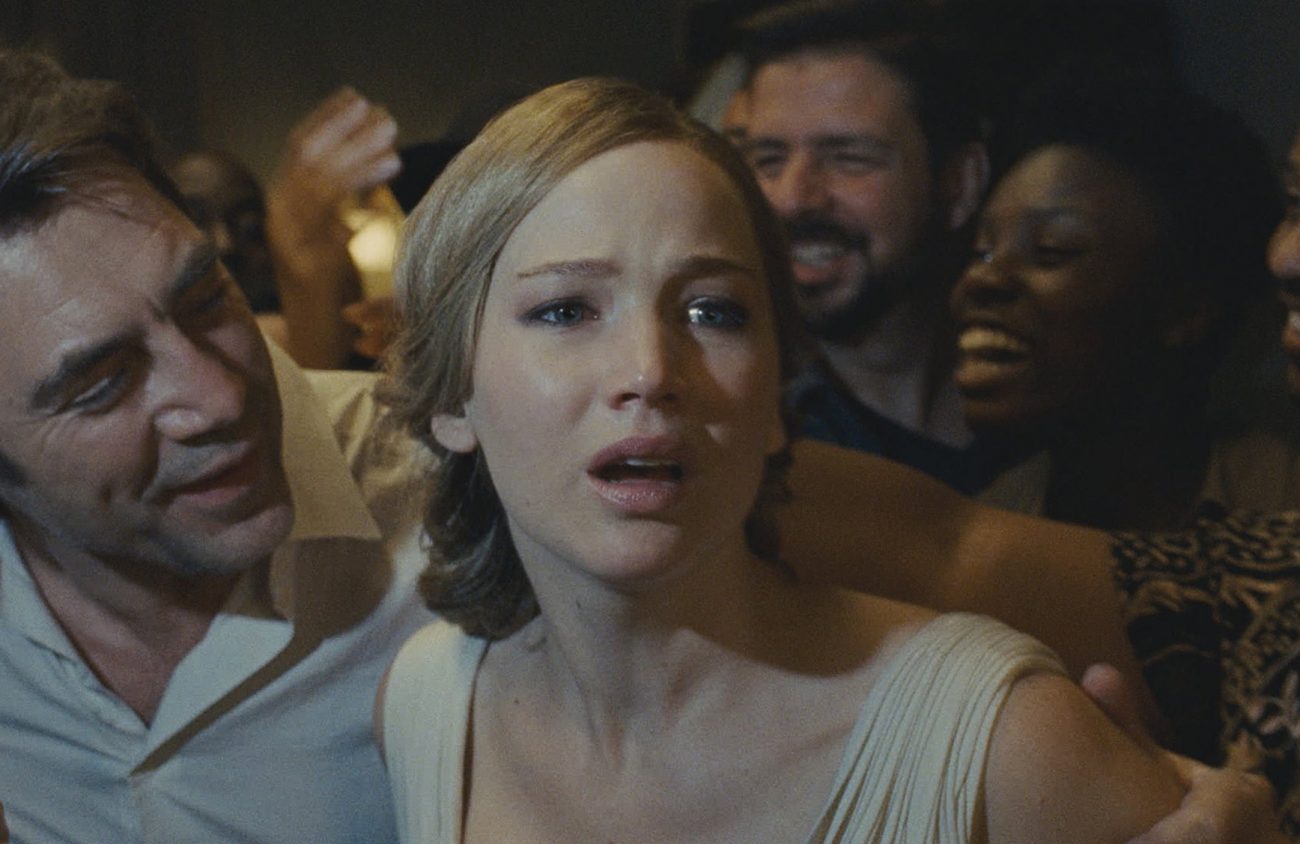It’s been a while since a major studio movie has been as divisive as Darren Aronofsky’s Mother! There is no spectrum of audience appreciation for this film, no middle ground — only high praise or vehement disgust.
And rightfully so. Mother! is not a movie for everyone.
Although I fall into the former category of people who loved Mother!, it’s not hard to gather an inkling about why people hated the film.
First off, the film’s marketing strategy was a recipe for disaster — pushed as a straightforward horror movie instead of the hell-bent, conceptual, psychological beast that it is. If you’ve seen any other Aronofsky movies, though — Black Swan, Requiem for a Dream, Pi, etc. — you probably could’ve taken a wild guess that this is the direction the film would take.
Second, there’s a by-now-notorious “gross-out” scene that has offended pretty much everyone, with some people saying it made them walk out of the theater before the film’s end. (Maybe I’ve just been desensitized by traditional horror movies, or I’m just a terrible person, but this scene didn’t particularly get to me.)
Lastly, there’s the film’s plot — merely a blank slate for any number of allegories or metaphors — which is everything but traditional.
Mother! stars Jennifer Lawrence and Javier Bardem as a married couple. Lawrence is in the process of renovating Bardem’s childhood home after a fire; the two live in harmony as Bardem’s character, a published poet, works on his writing and Lawrence works on the house.
Mother! functions as a fill-in-the-blank film for the viewer, one to which you can ascribe any higher meaning you want — so much so that Aronofsky doesn’t even provide names for his characters. (In the credits, Lawrence is “mother” and Bardem is “Him.”)
The couple’s idyllic paradise is quickly shaken when Ed Harris’ character shows up at their door. His wife, played by Michelle Pfeiffer, arrives shortly after. Lawrence is disturbed by the couple’s arrival, but Bardem is ominously calm, inviting the two to stay as long as they’d like. This is where things get weird.
The film evolves into a feverish thrill ride going off the rails, with Lawrence’s character strapped in tight. In classic Aronofsky fashion, as Lawrence becomes more paranoid, so does the film, leaving the viewer unsure of what’s really going on, yet pummeled by tangible anxiety. Her lack of control is the true horror, and Aronofsky makes sure the audience feels every second of it.
This chaos is portrayed brilliantly by cinematographer Matthew Libatique, best known for his work in other Aronofsky movies. Libatique creates beautifully frightening tight shots, almost Kubrick-esque, paralleling The Shining’s young Danny tricycling through the claustrophobic halls of the Overlook Hotel.
Libatique’s camera follows Lawrence throughout the house so closely and quickly during times of distress, the audience yearns to zoom out and reveal whatever it is that’s lurking around the corner.
In the second half of the film, more and more people show up at Lawrence and Bardem’s home, claiming to be fans of Bardem’s work, trashing spaces and breaking furniture — with Lawrence’s character’s valid concerns ignored and scorned, and Bardem blinded with egotistical joy.
The film’s final 30 minutes swirl into a total chaotic nightmare, with Lawrence’s character taken past her breaking point, but still willing to give up everything to her husband and her home.
There are an infinite number of allegories Mother! could represent, but the most coherent one is the Biblical creation story portrayed in Genesis: Bardem plays God, Lawrence is Mother Earth, Harris and Pfeiffer are Adam and Eve (their two sons who come along, played by the real-life siblings Domhnall and Brian Gleeson, are Cain and Abel), and the house itself is the Garden of Eden.
But, for someone like me who has minimal Biblical knowledge, the film offers up a plethora of other metaphorical options for consumption: colonization, the destruction of land and nature, or humanity’s apathy about global warming, the loss of control and bodily autonomy that women face in a patriarchal society — and the concept of maternity itself and the sacrifices that come with it.
The list goes on.
The multiplicity of Mother! is its beauty. Its ability to be a truly individual experience for each and every viewer is unlike anything I have seen in recent film. But inevitably it’s a film that people will either love or loathe. The film has already received an F on CinemaScore, a site that surveys moviegoers in random cities as they exit the theater. (CinemaScore gave the Emoji Movie a B, so my trust in its audience ratings isn’t particularly strong.)
Not unlike Aronofsky’s other films, Mother! features such grotesque and uncomfortable imagery that I question its re-watch value. And when I say grotesque, I was truly surprised that a major studio like Paramount decided to run with the film. That said, Mother! is definitely not for the faint of heart.
If, however, you have an open mind about cinema and its ability to shatter Hollywood plot-points in an attempt to tackle the avant-garde and its deepest, most thought-provoking concepts — this is it. (Cinemark 17, Regal Valley River)
